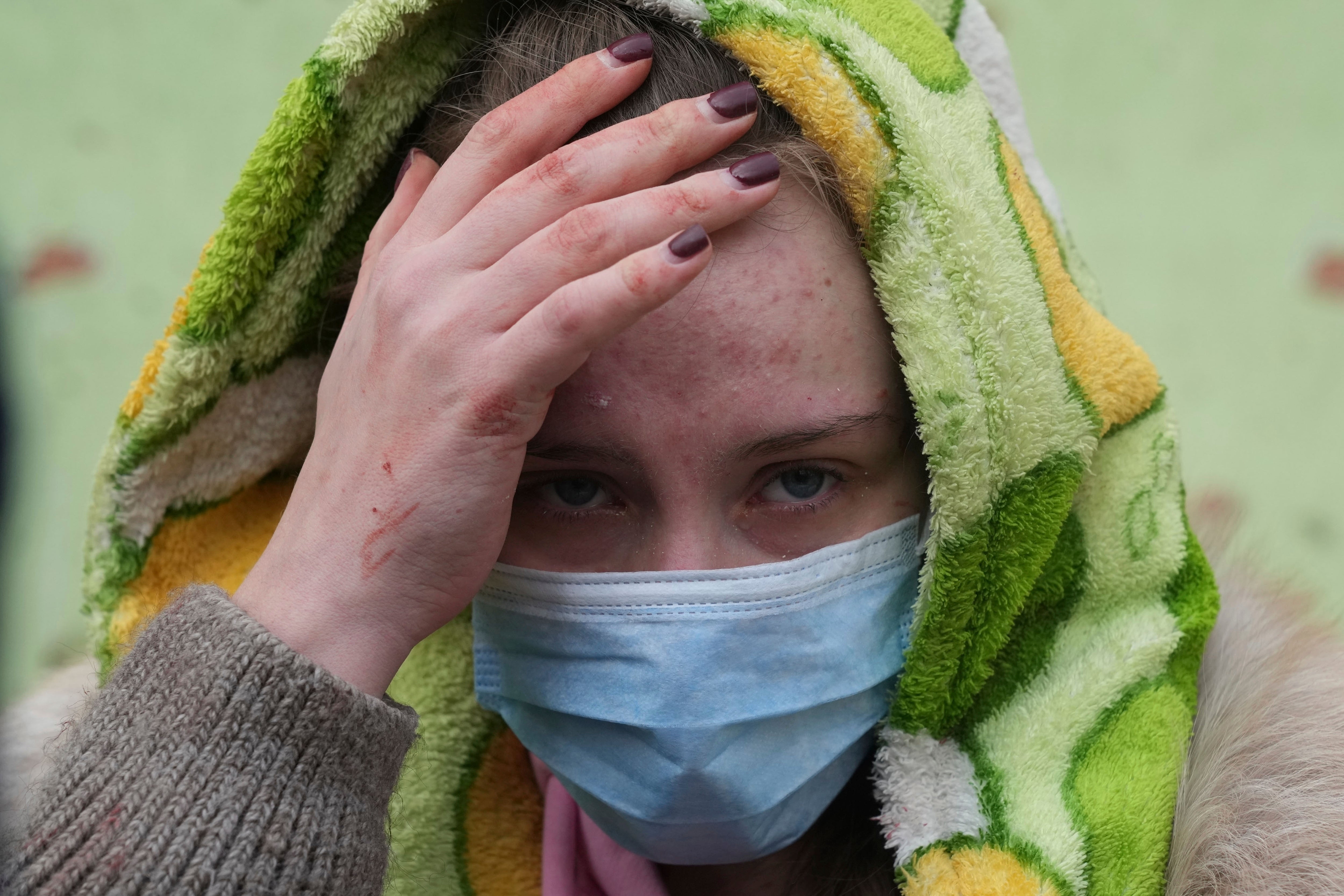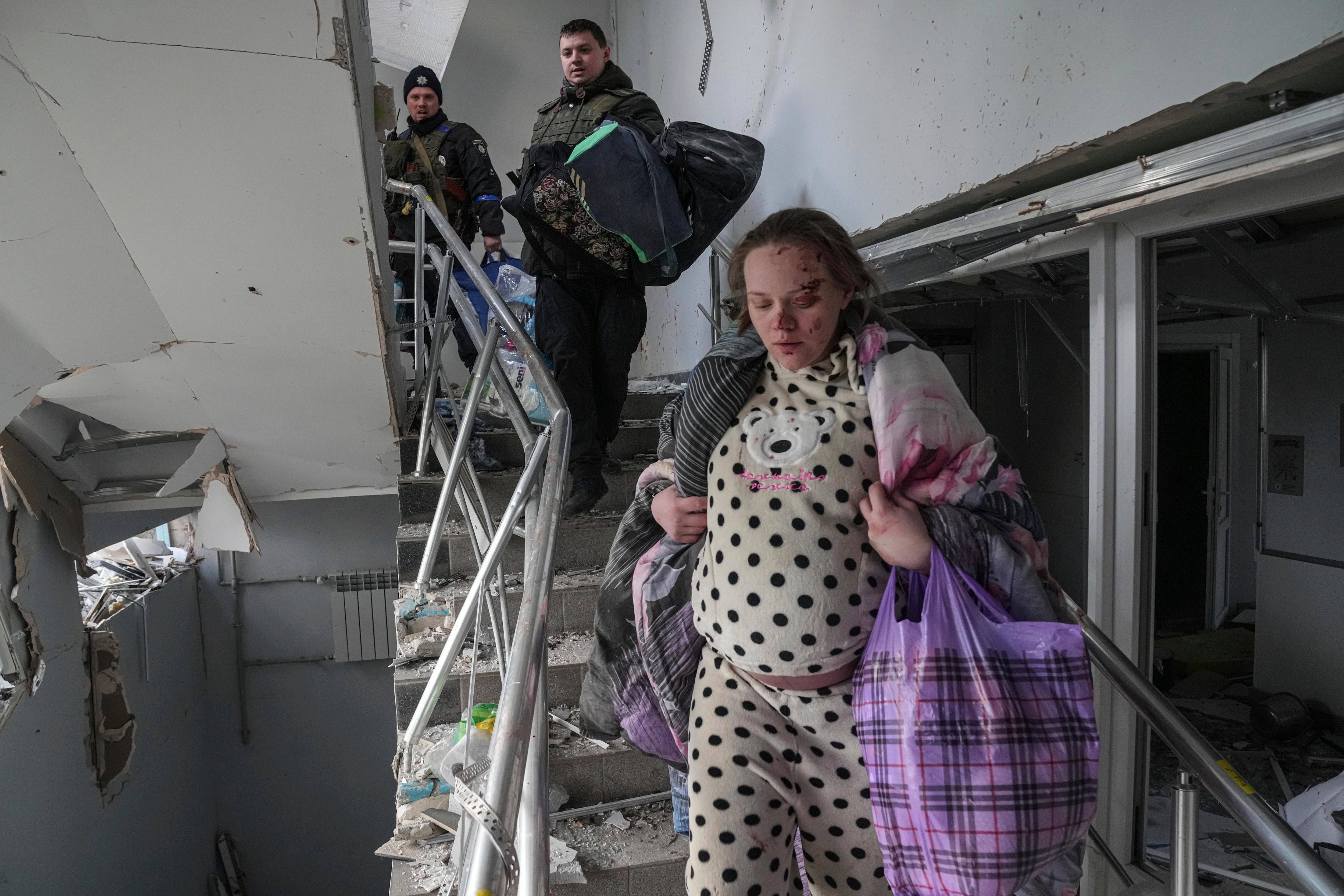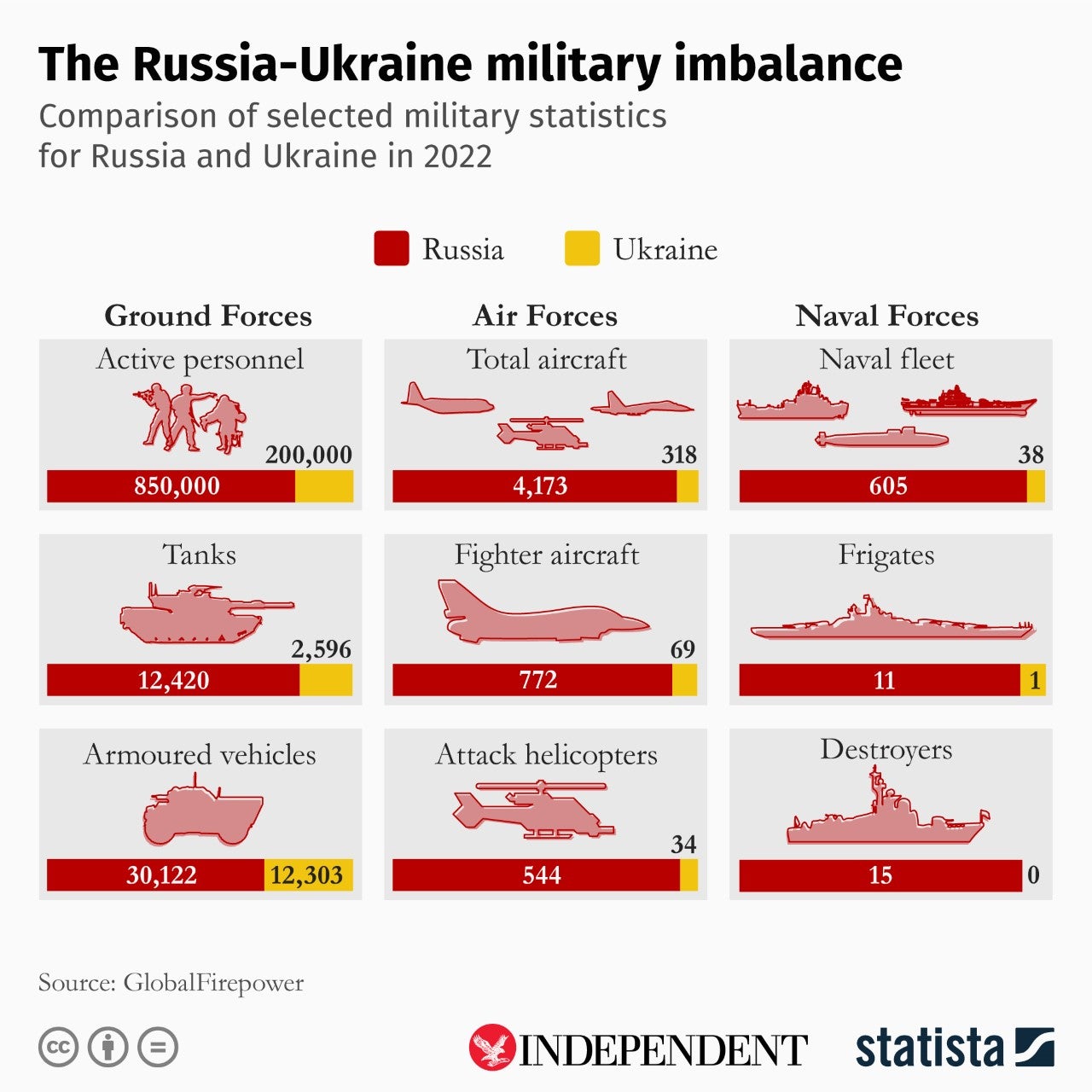‘It’s medieval’: Russia condemned for attack on Mariupol maternity hospital
At least three people - including a six-year-old child - killed in the ‘depraved’ attack
Your support helps us to tell the story
From reproductive rights to climate change to Big Tech, The Independent is on the ground when the story is developing. Whether it's investigating the financials of Elon Musk's pro-Trump PAC or producing our latest documentary, 'The A Word', which shines a light on the American women fighting for reproductive rights, we know how important it is to parse out the facts from the messaging.
At such a critical moment in US history, we need reporters on the ground. Your donation allows us to keep sending journalists to speak to both sides of the story.
The Independent is trusted by Americans across the entire political spectrum. And unlike many other quality news outlets, we choose not to lock Americans out of our reporting and analysis with paywalls. We believe quality journalism should be available to everyone, paid for by those who can afford it.
Your support makes all the difference.Russia stands accused of carrying out an “atrocity” after an airstrike completely destroyed a maternity hospital in the besieged city of Mariupol, killing three people - including a six-year-old child - and injuring more than a dozen others including women in labour, according to Ukrainian officials.
Young girls and boys were said to be buried under the wreckage following the bombing, with rescue workers frantically digging to get them out amid fears that further military strikes could take place.
On a day when Moscow was accused of committing war crimes in Ukraine, the attack left at least 17 people injured. It took place during an agreed ceasefire period that was meant to allow civilians to evacuate the surrounded southeastern city, where officials say some 400,000 people are being held “hostage” by Russian forces.

Mariupol has been besieged for days, leaving thousands of people without power, sanitation or basic necessities for almost a week as it comes under constant bombardment. Bodies have been left lying in the street, and fires burn across the city.
Ukraine’s president, Volodymyr Zelensky, wrote on Twitter that the hospital attack had left a number of people, including children, trapped beneath the wreckage, and called it an “atrocity”. Authorities said they were trying to establish how many people had been killed or wounded.
Video shared by the president showed cheerfully painted hallways strewn with twisted metal, and room after room with blown-out windows. Floors were covered in debris.
The attack prompted Mr Zelensky to repeat calls for a no-fly zone over Ukraine. “How much longer will the world be an accomplice ignoring terror? Close the sky right now! Stop the killings! You have power but you seem to be losing humanity,” he wrote.
Mariupol’s city council said on its social media site that the damage was “colossal”.
The bombing of the 700-bed hospital came after days of intense bombardment of the city. Mariupol’s deputy mayor, Sergei Orlov, said 1,170 residents had died. Around 50 of the dead were buried in a mass grave, with mortuaries unable to operate in the normal manner.

“It’s medieval. It’s pure genocide. The attack isn’t simply treacherous. It’s a war crime. They are attacking us with aviation, shells, multiple rocket launchers,” said Mr Orlov. “We can’t understand how it is possible, in the modern world, to bomb a hospital for children.”
Viktor Bondarenko, who fled Mariupol with his family, told The Independent of his fears for his cousin Iryna, who worked at the hospital. “We think she is all right, but that is just second-hand information,” he said from Mykolaiv, where he has taken refuge. “But we do not know, and we’re very, very worried. We cannot believe anyone would want to kill children.”
Another resident of Mariupol said: “I don’t have words, it’s terrible. The destruction of civilian infrastructure cannot be allowed in any conflict.” He added that all children’s medical services in the city had collapsed, and that the situation in Mariupol was “the most critical” in Ukraine.
Maksym Dotsenko, the director general of the Ukrainian Red Cross, told The Independent that the targeting of the children’s hospital in Mariupol would create the “complete collapse” of children’s medicine in the besieged city.
“I don’t have words, it’s terrible. The destruction of civilian infrastructure cannot be allowed in any conflict,” he said. “There is already a severe lack of medical supplies for children for civilians in Mariupol.”

The attack on the hospital was condemned internationally, with British prime minister Boris Johnson saying: “There are few things more depraved than targeting the vulnerable and defenceless. The UK is exploring more support for Ukraine to defend against airstrikes, and we will hold Putin to account for his terrible crimes.”
The White House, in response to the attack, said it was “horrifying” to see military force used against innocent civilians.
Kremlin spokesperson Dmitry Peskov, when asked about the bombing of the hospital, said: “Russian forces do not fire on civilian targets.”
The airstrike came on a day of increasing concern over Russia’s conduct in the war, which began when it invaded Ukraine exactly two weeks ago. Britain’s Ministry of Defence said Russia had admitted using thermobaric weapons, and the United States said Moscow was using “dumb bombs” – unguided munitions with no target.
At the same time, western officials said they had “serious concerns” that Vladimir Putin might authorise the use of chemical weapons as Russia’s military forces remain bogged down.
Asked about the potential for the use of such weapons, a western official said: “I think we’ve got good reason to be concerned about the possible use of non-conventional weapons, partly because we’ve seen what has happened in other theatres – for example in Syria – [and] partly because we see a bit of ‘setting the scene’ for that in the sort of false-flag claims that are coming out, and some other indications. It’s a serious concern for us.”
The US secretary of state compared the assault on Ukraine to the Blitz on Britain during the Second World War, as he received foreign secretary Liz Truss in Washington.
Elsewhere, there were fresh concerns over the safety of the Chernobyl nuclear plant. Ukraine’s state power operator warned that Russian forces had disconnected the facility from the grid, raising fears over the cooling of spent fuel.
Energoatom said radioactive substances could be released into the air if power is not restored soon. Work to repair the connection, which has been occupied by Russian troops for several days, has not been possible because fighting is under way, it said.

The unfolding humanitarian disaster across Ukraine has also gathered pace.
Authorities announced new ceasefires on Wednesday morning to allow thousands of civilians to escape from towns around Kyiv, as well as Enerhodar, Volnovakha, Izyum and Sumy.
Previous attempts to establish safe evacuation corridors largely failed because of what the Ukrainians said were Russian attacks. It was not immediately clear whether anyone was able to leave the cities on Wednesday, but people streamed out of Kyiv’s suburbs, many headed for the city centre.
The United Nations estimates that more than 2 million people have fled the country, the biggest exodus of refugees in Europe since the end of the Second World War.
The Independent has a proud history of campaigning for the rights of the most vulnerable, and we first ran our Refugees Welcome campaign during the war in Syria in 2015. Now, as we renew our campaign and launch this petition in the wake of the unfolding Ukrainian crisis, we are calling on the government to go further and faster to ensure help is delivered.
To find out more about our Refugees Welcome campaign, click here. To sign the petition click here. If you would like to donate then please click here for our GoFundMe page.



Join our commenting forum
Join thought-provoking conversations, follow other Independent readers and see their replies
Comments